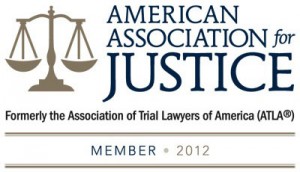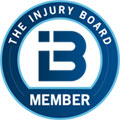Senior Safety Alert: Keep loved ones in nursing homes and assisted living facilities safe during the coronavirus (COVID-19) outbreak.
The coronavirus pandemic magnifies the dangers that seniors face. According to the CDC, seniors with compromised immune systems and certain underlying medical conditions like diabetes are at greatest risk for developing and suffering significant complications and death from COVID-19.
Now more than ever, nursing homes and assisted living facilities need to follow their infection control policies and procedures and the special guidance for COVID-19 safety. The Centers for Disease Control (CDC) and Centers for Medicare and Medicaid Services (CMS) have issued extra guidelines for nursing homes. The Consumer Voice remains an excellent resource for nursing home residents, their families and advocates.
The CDC recommendations comprise everyday actions to prevent the spread of respiratory diseases, including:
- Avoid close contact with people who are sick.
- Avoid touching your eyes, nose, and mouth.
- Stay home when you are sick.
- Cover your cough or sneeze with a tissue, then throw the tissue in the trash.
- Clean and disinfect frequently touched objects and surfaces using a regular household cleaning spray or wipe.
- Follow CDC’s recommendations for using a face mask.
- Wash your hands often with soap and water for at least 20 seconds, especially after going to the bathroom; before eating; and after blowing your nose, coughing, or sneezing.
The CDC guidelines apply to both nursing homes and assisted living facilities.
CMS guidelines have specific recommendations for nursing homes. CMS advises nursing homes restrict all visitors and non-essential health care personnel, except for certain compassionate care situations, such as an end-of-life situation.
As of March 13, 2020, CMS guidance for nursing homes also includes:
- Prompt detection, triage and isolation of potentially infectious residents
- Active screening of residents and staff for fever and respiratory symptoms
- Train and prepare staff to improve infection control and prevention practices
- Communicate visitation restrictions through signage at entrances/exits, letters, emails, phone calls and recorded messages
- Cancel communal dining and all group activities
- Remind residents to practice social distancing and frequent hand washing
- Offer alternative means of communication for families and loved ones
- Advise anyone who does enter a facility to monitor for signs and symptoms of respiratory infection for at least 14 days after exiting the facility, and if symptoms occur, to self-isolate at home
In addition, CMS is now focusing all its inspection and enforcement efforts on infection control efforts. You can read more here.
It is important to note that the CMS guidelines do not apply to assisted living facilities because CMS does not regulate assisted living facilities.
Preventing the spread of coronavirus and other infectious diseases, as with most other harms in nursing homes and assisted living facilities, also includes having enough properly trained staff to meet each resident’s needs. Staff must be taught infection control procedures and supervised to be sure that they follow these measures. Additional training and oversight must be completed to implement the CDC and CMS guidelines properly.
Tips for Staying in Touch with Loved Ones
With visitors to nursing homes now restricted, here are some helpful tips from The National Consumer Voice for staying in touch with loved ones:
– Communicate via letters and cards or drop off care packages at the facility.
– Use technology – video chat, FaceTime, text and email.
-Post photos and share tips on how you’re staying connected to loved ones and use #lovefromadistance









